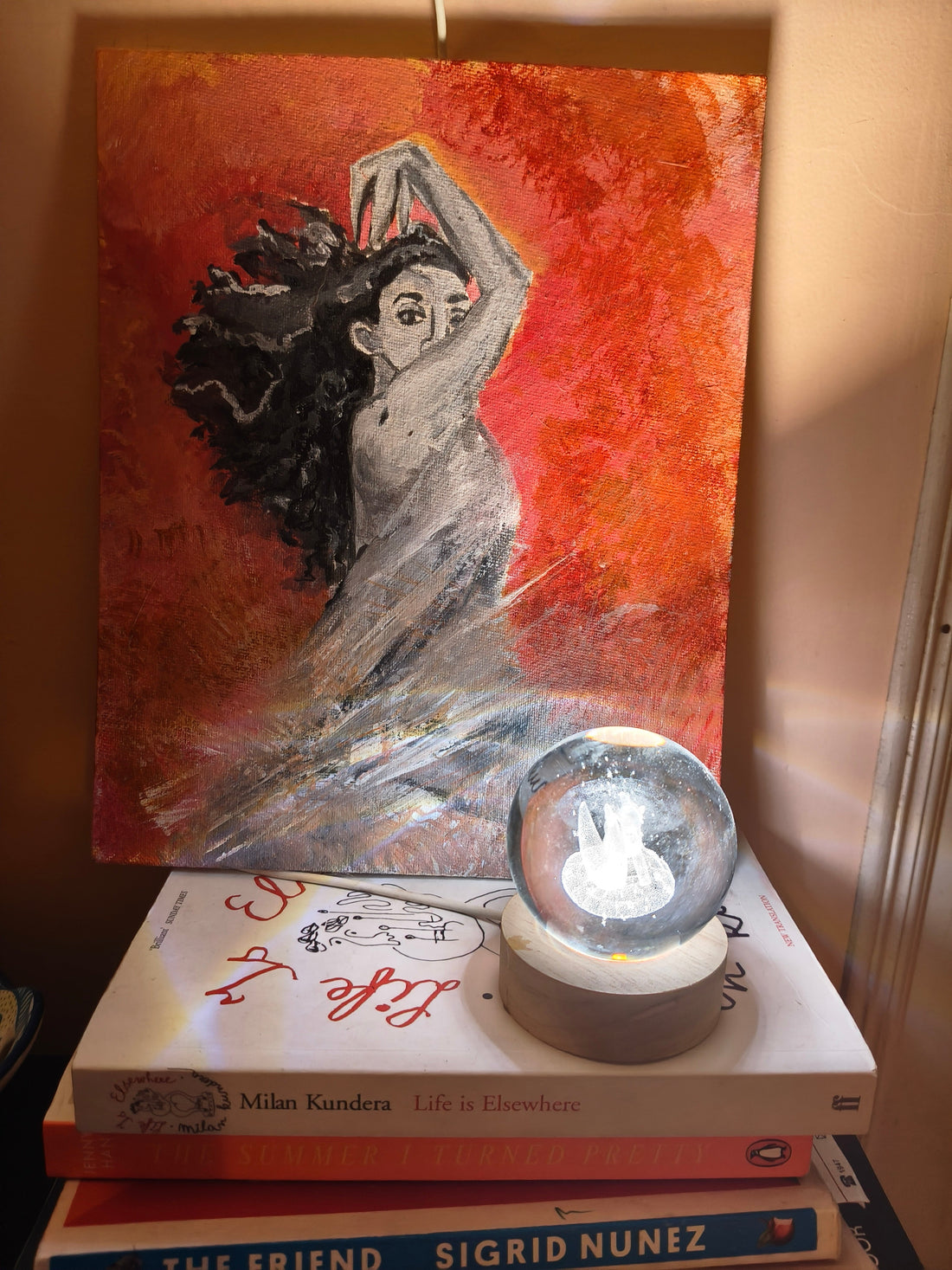
Mental Health for Artists - A Guide to Creating Holistically
Share
Olivia Roy
Today is Mental Health Day, and I am writing now with meh mental health, because I have a job to keep and quarterly goals to meet.
Being an artist sucks, especially if you are someone like me: have ADHD and are multi-passioned. The cycle of being stuck in creating a masterpiece and yet feeling that all appreciation is flattery, that your work has no meaning, and you are just another face in the background, feels quite inescapable as an artist. Yet, even if you choose to fail and try to make peace with a job you hate or a relationship that validates yourself, you are never truly present.
Artists are never really present anywhere, except in the liminal spaces in their minds. Lamenting this makes me want to give you some suggestions because a part of my job is about imparting unsolicited advice.
To quote Julia Cameron from The Artist’s Way,
“Art is a spiritual experience.”
That is how she begins her book, and the more you think about it, you start to relate your creative expression with spirituality. Like most people in the course of their spiritual epiphanies, there is always an inner calling that guides them along the paths they choose and inspires the actions they take, and the lifestyle they adopt. For us artists, it is no different. The story that kept you awake at night or the vision you had in your dreams that you wanted to fill canvases with are all that unite us and destroy our sanity, but keep us alive. That's how Julia started teaching The Artist’s Way in Manhattan, because she believed art brought her there, and to excel in her craft, she needed to unblock others -
“Called to teach, I could not imagine the good teaching would bring to me and, through me, to others.”
If you are still reading, and these words speak to you, the first advice for artists like yourself on Mental Health Day is to remember the truth that we cannot escape. Julia adds,
“Don’t judge the work or yourself. You can sort it out later.”
My interpretation of such advice through my own artistic endeavours is that we all spend a significant amount of time fearing visibility. For a change, we must believe that the visibility of our work is important to connect us to our soul tribes and perhaps, if we are lucky enough, we might make the world a better place.
In my own experience, I had the limiting belief that I cannot create if I don’t experience pain and deprivation. With that mindset, I could only chase self-abandonment. When my mental health deteriorated and therapy compelled me to confront myself, I realised I needed to work on myself to choose happiness. Having found security in my life from then onwards, there was no space for art anymore. I had no chaos to inspire me. In fact, for the sake of my mental diet, I had stopped consuming high-brow culture: art films, poetry that moves your soul, paintings you spend intellectualising, ghazals of unrequited love. In fact, I had lost the taste for thinking creatively and critically and told myself that not everything needs to be that dramatic.
Stability provides you with peace, but not an identity. After three years, I had to come back to my canvas. And like any reconciliation in real life, I faced hot and cold behaviour. It was not a happy ending with a mere “I love you.” It demanded loyalty and consistency. And to fill my own cup, to pour into others’ cups, I had to accept the truth all over again. Art for life, art as resistance, art as survival. Like Julia explains,
“Creativity is like crabgrass - it springs back with the simplest bit of care.”
I realised that it’s not just my art that needed care, but I needed to be cared for by my creations as well. And so this time, to paint, I needed more time than I ever needed: three months, and I had painted my first ever self-portrait.
Additionally, I worked on my writing too. I took the initiative of taking the responsibility of doing anything related to writing at work, I began to participate in reading and writing circles, and most importantly, I began to relax.
As a multi-passioned artist, I had to take a break from routine and resort to the voice that called me at the time. So if I felt brain dead regarding my photography, I told myself, I will do it when I have to. Meanwhile, I gave my best to the projects that nourished my soul. And then there was the voice that often screamed inside me, “jack of all trades, master of none,” but I reminded myself of the entire quote as an affirmation: "But oftentimes better than master of one.”
So, this Mental Health Day, forgive yourself. Follow your artistic intuition; it is never as loud as your fear.
